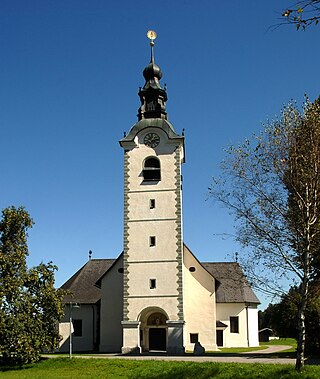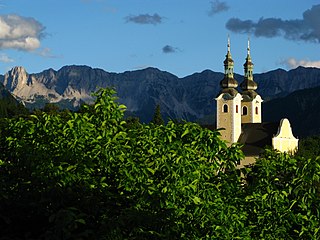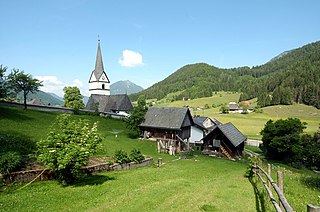
Klagenfurt am Wörthersee is the capital and largest city of the Austrian state of Carinthia, as well as of the historical region of Carinthia including Slovene Carinthia. With a population of 104,862, it is the sixth-largest city in Austria after Vienna, Graz, Linz, Salzburg, and Innsbruck. The city is the bishop's seat of the Roman Catholic Diocese of Gurk-Klagenfurt and home to the University of Klagenfurt, the Carinthian University of Applied Sciences and the Gustav Mahler Private University for Music. Klagenfurt is considered the cultural centre of the Carinthian Slovenes, one of Austria's indigenous minorities.

Carinthia is the southernmost and least densely populated Austrian state, in the Eastern Alps, and is noted for its mountains and lakes. The main language is German. Its regional dialects belong to the Southern Bavarian group. Carinthian Slovene dialects, forms of a South Slavic language that predominated in the southeastern part of the region up to the first half of the 20th century, are now spoken by a small minority in the area.

Völkermarkt is a town of about 11,000 inhabitants in the Austrian state of Carinthia, the administrative capital of Völkermarkt District. It is located within the Drava valley east of the Carinthian capital Klagenfurt, north of the Karawanken mountain range.

Eisenkappel-Vellach is a market town in the Völkermarkt District in the Austrian state of Carinthia. The spa town is the southernmost municipality of Austria, close to the border with Slovenia.

Feistritz im Rosental, often referred to as simply Feistritz, is a market town in the district of Klagenfurt-Land in the Austrian state of Carinthia.

Keutschach am See is a municipality in the district of Klagenfurt-Land in the Austrian state of Carinthia.

Köttmannsdorf is a town in the district of Klagenfurt-Land in the Austrian state of Carinthia.

Maria Rain is a town in the district of Klagenfurt-Land in the Austrian state of Carinthia, known for its Baroque parish and pilgrimage church.

Moosburg is a market town in the Klagenfurt-Land district in the Austrian state of Carinthia.

Pörtschach am Wörthersee is a municipality in the district of Klagenfurt-Land in Carinthia, Austria. It is an established summer resort and lakeside town on Wörthersee.

Sankt Margareten im Rosental is a town in the district of Klagenfurt-Land in the Austrian state of Carinthia.

Zell is a municipality in the district of Klagenfurt-Land in the Austrian state of Carinthia.

Oberdrauburg is a market town in the district of Spittal an der Drau at the western rim of the Austrian state of Carinthia.

Arnoldstein is a market town in the district of Villach-Land in the Austrian state of Carinthia.

Finkenstein am Faaker See is a market town in the district of Villach-Land in Carinthia, Austria.

Sankt Jakob im Rosental is a town in the district of Villach-Land in the Austrian state of Carinthia.

Eberndorf is a market town of the Völkermarkt District in Carinthia, Austria.

Griffen is a market town in the district of Völkermarkt in the Austrian state of Carinthia.

Neuhaus is a small town in the Austrian state of Carinthia southeast of Klagenfurt, in the district of Völkermarkt, about 4 km from the border with Slovenia.
The Rosen Valley Railway is a mainly Austrian railway that runs from Sankt Veit an der Glan via Klagenfurt and Rosenbach to Jesenice in Slovenia. The section between Rosenbach and Jesenice through the Karawanks Tunnel is part of and international long-distance route between Salzburg and Zagreb. The railway line is operated by the ÖBB. Traffic between Weizelsdorf and Rosenbach was suspended at the commencement 2016/17 timetable change. The line was sold to the state of Carinthia. NBIK heritage trains have been running between Weizelsdorf and Feistritz since the summer of 2020.























